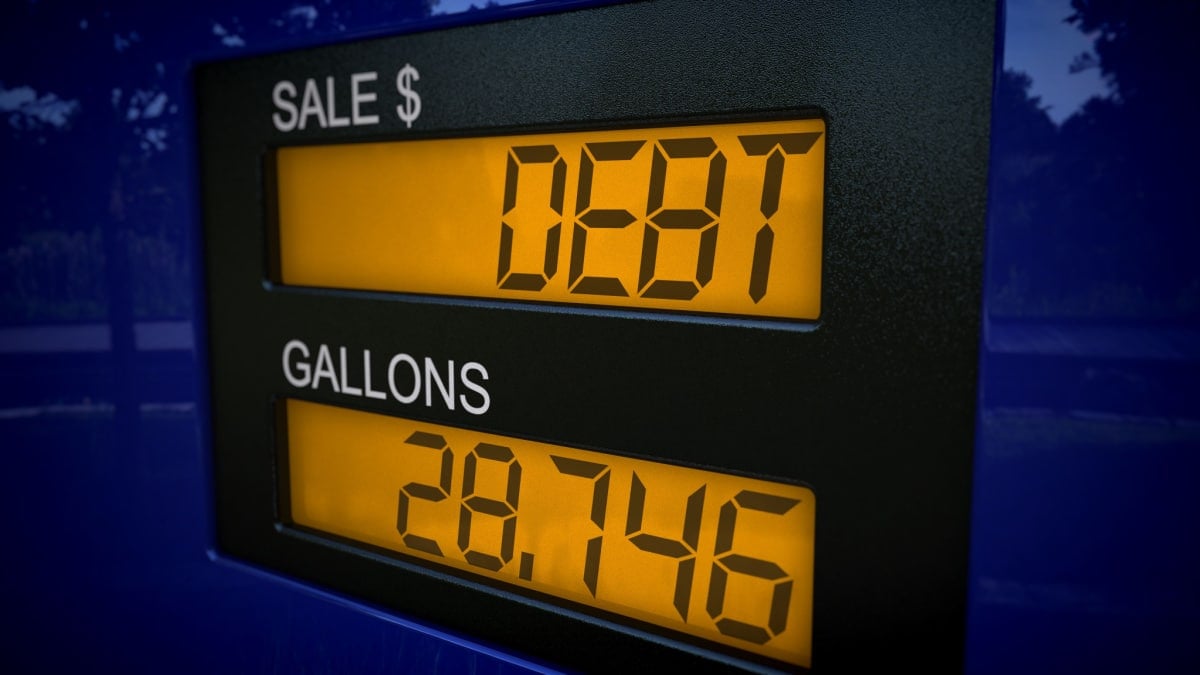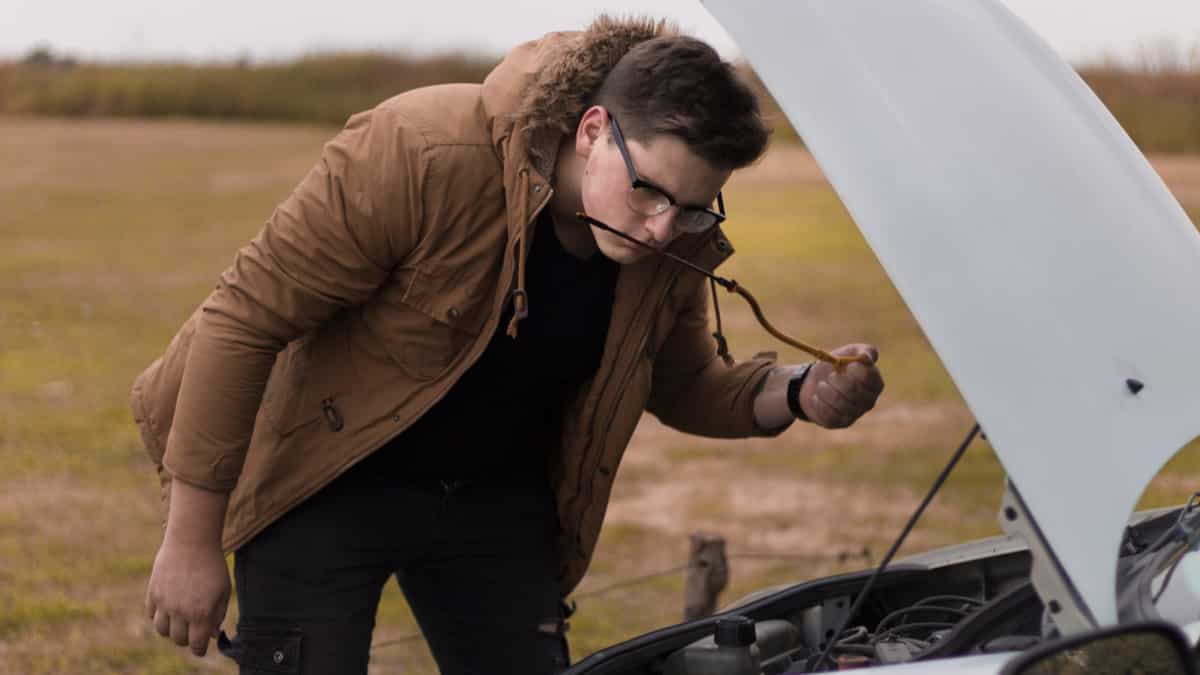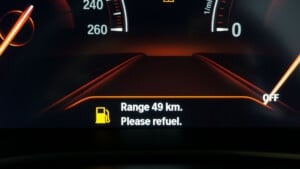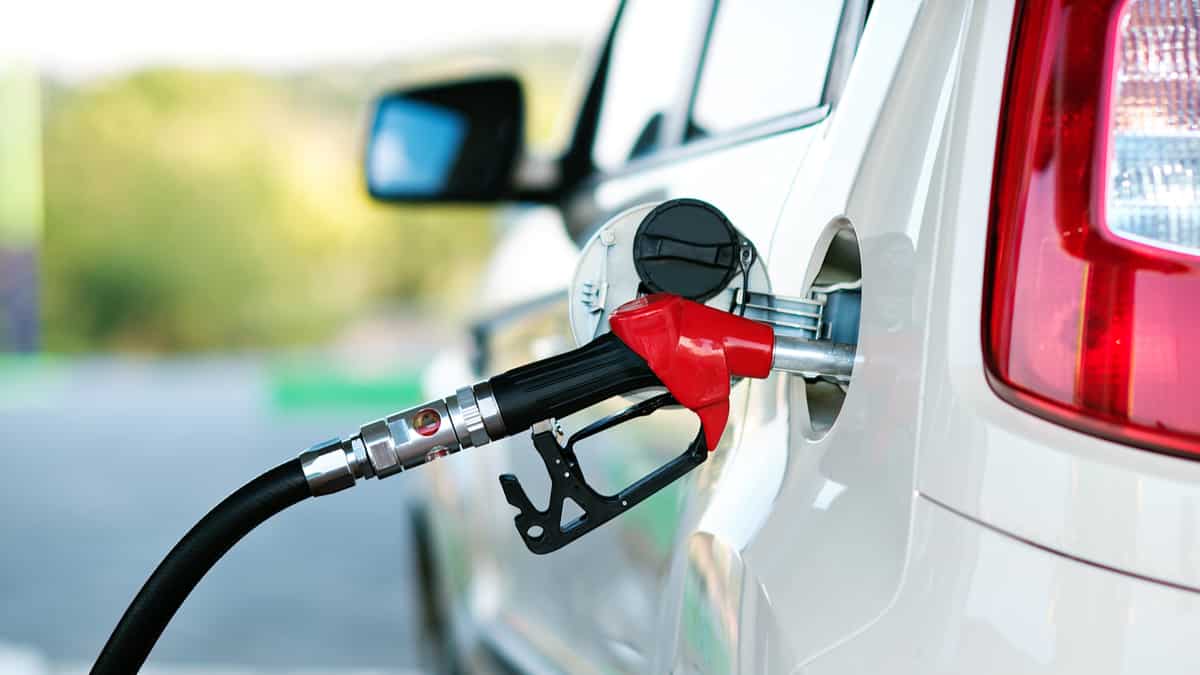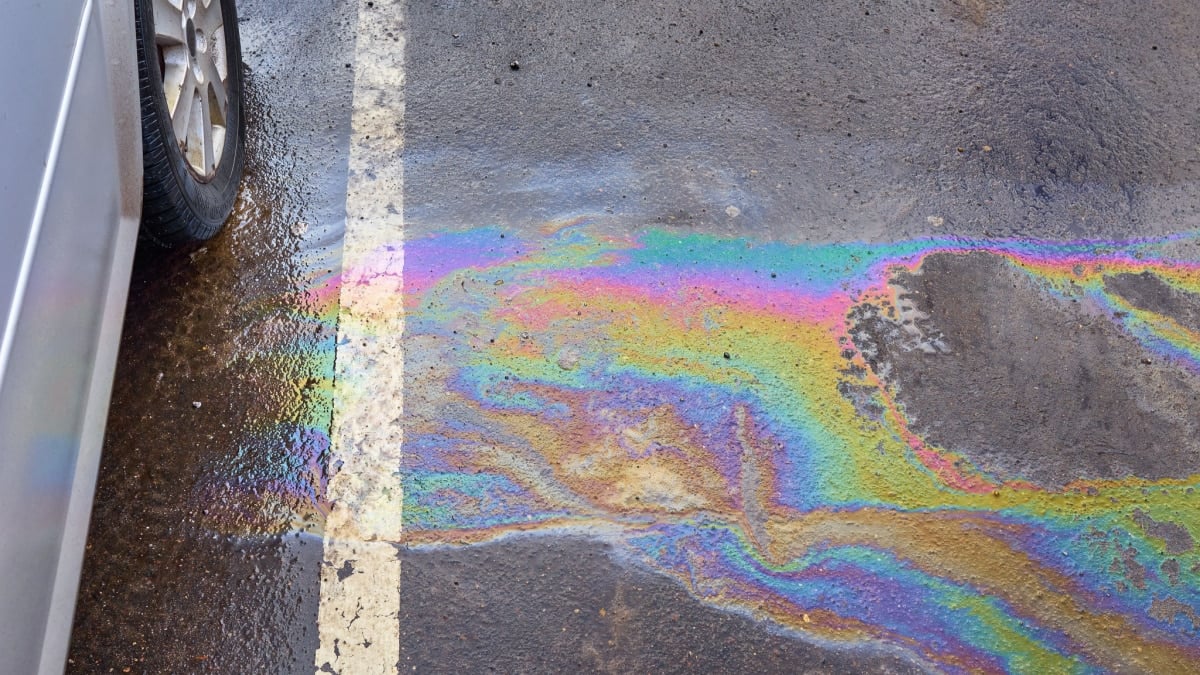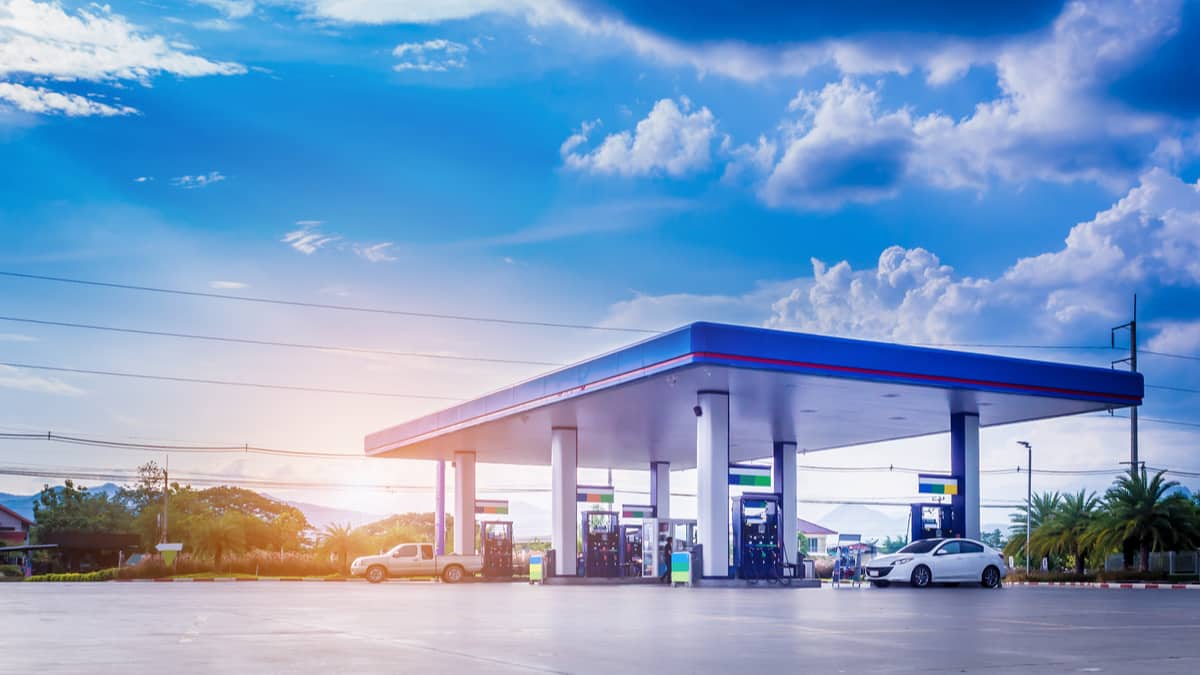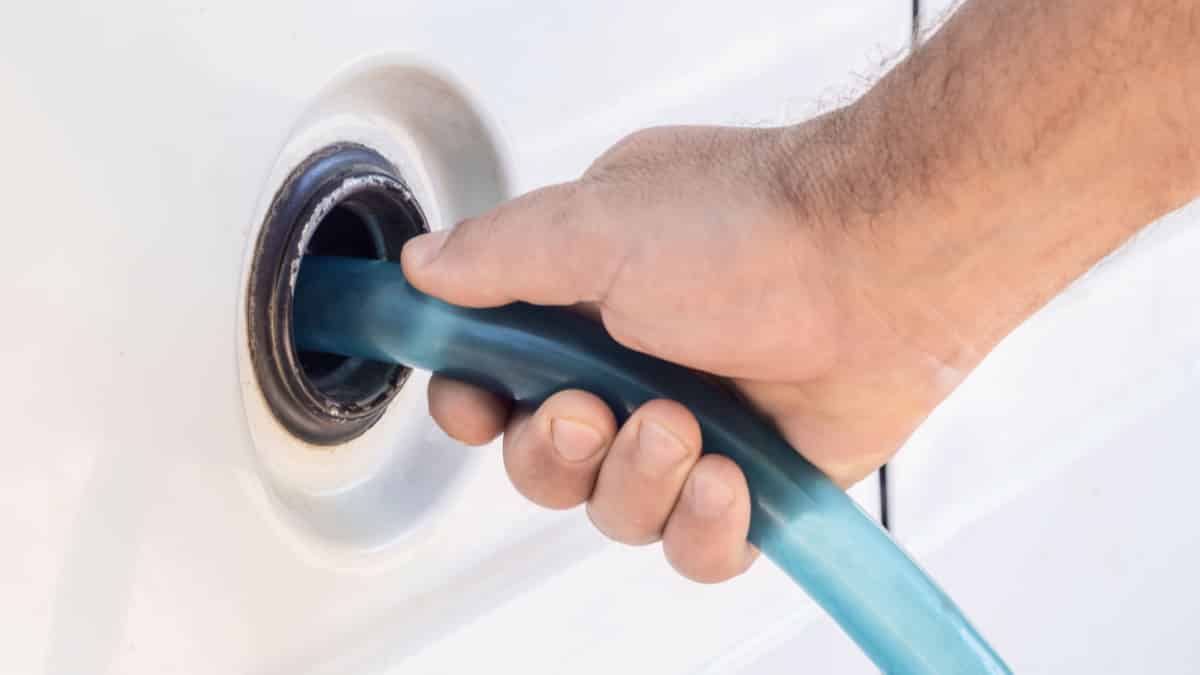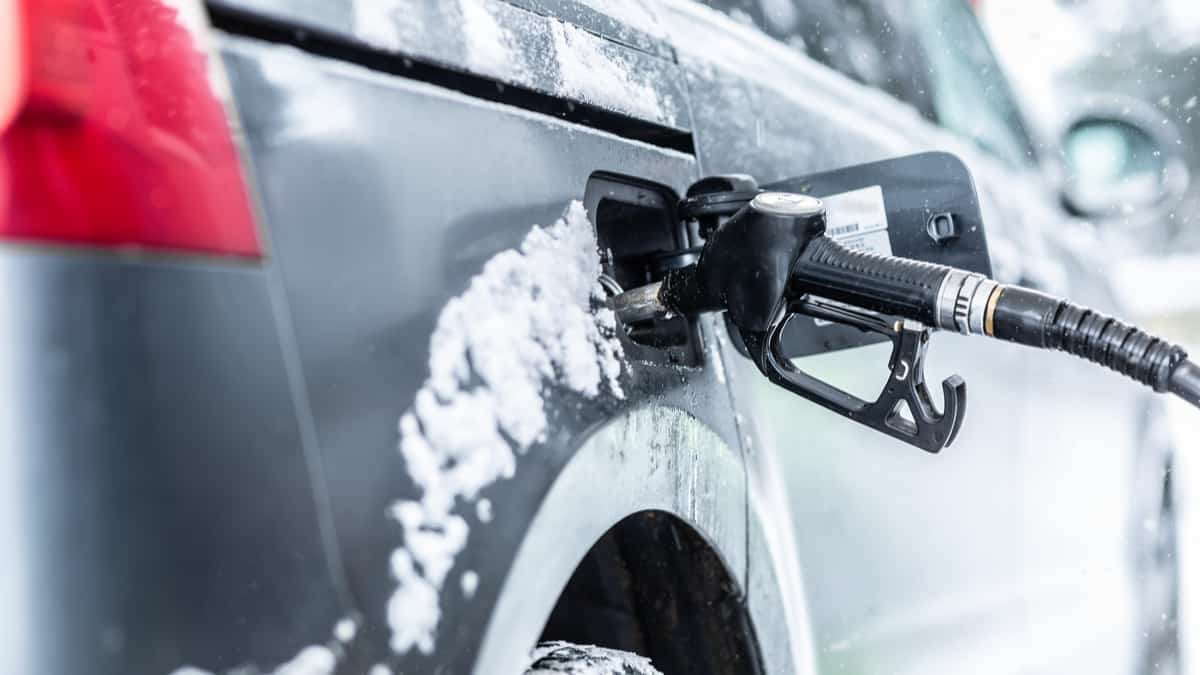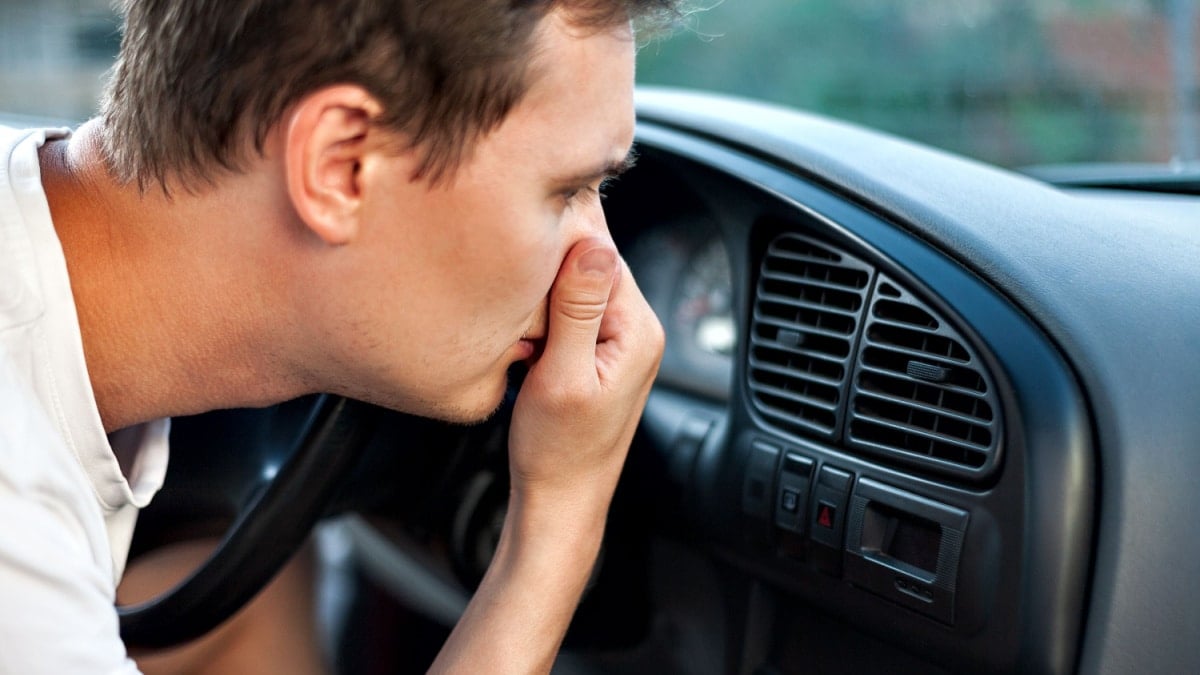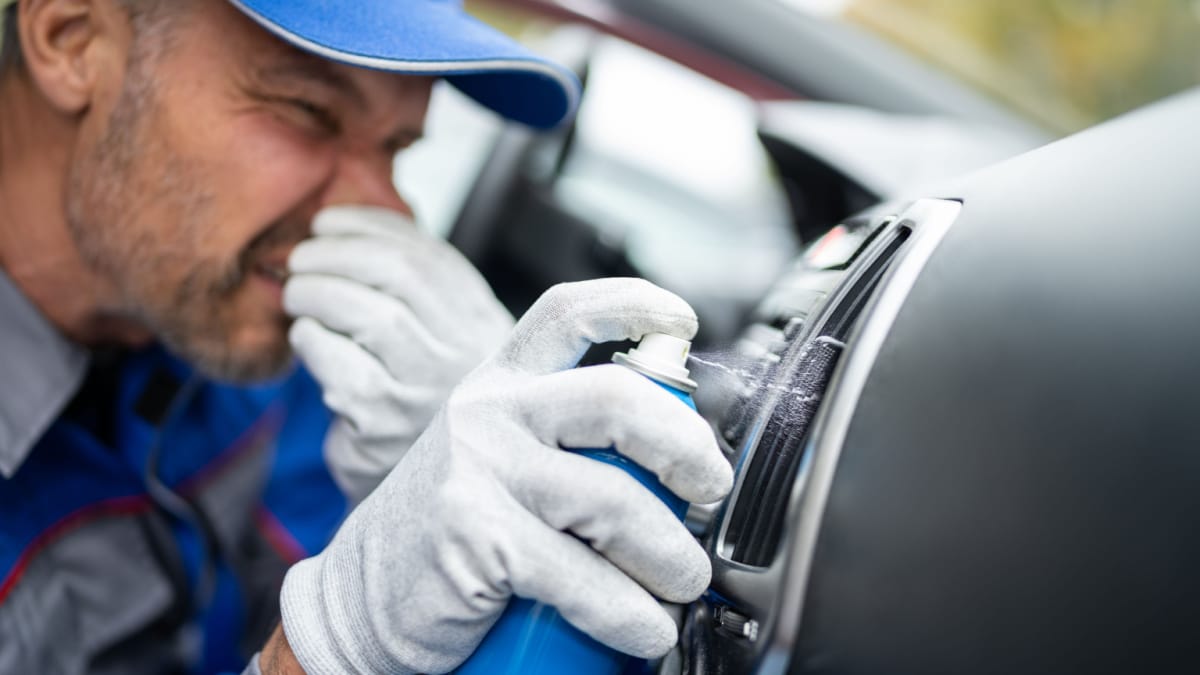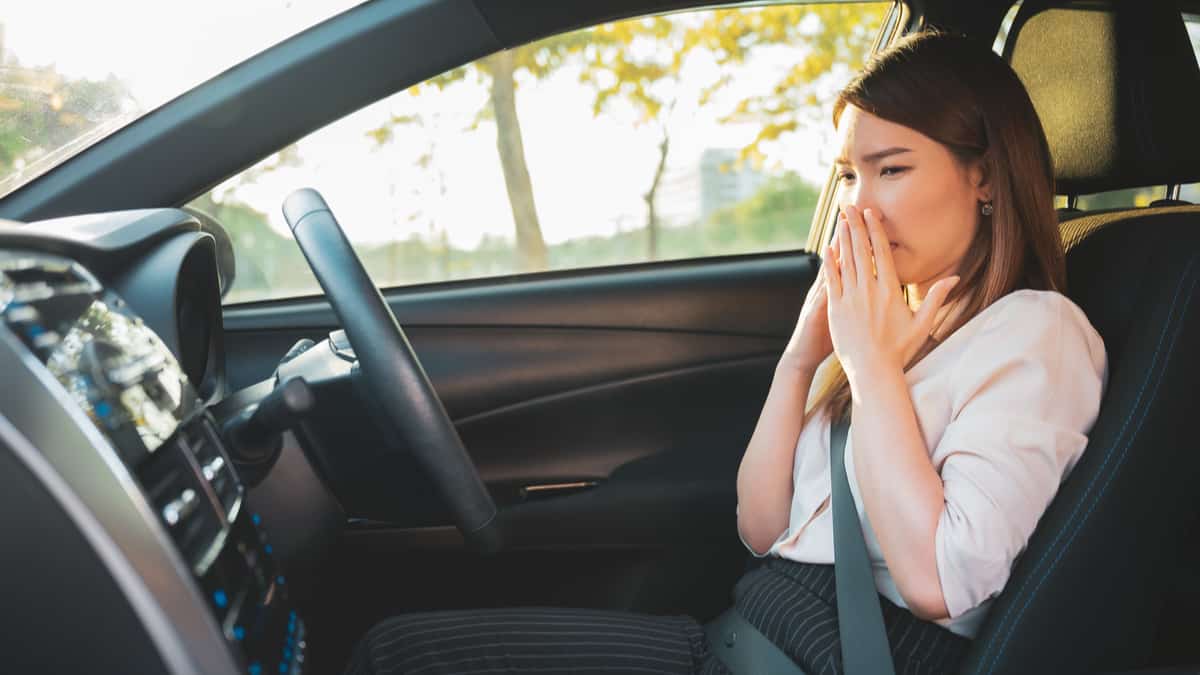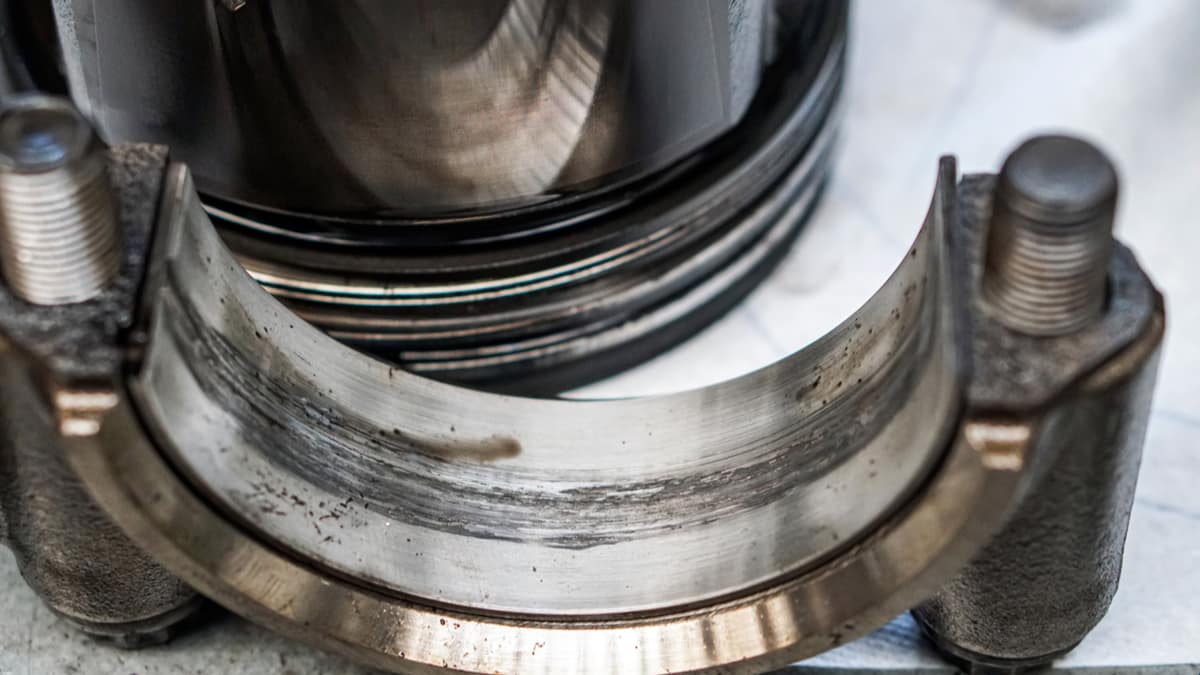It’s normal to smell gasoline when you are standing at the pumps, but you shouldn’t need to be subject to the odors once you leave. If your car smells like gas, there’s a problem.
In this guide, we cover the main reasons for a gas odor in your car. We show you a few locations where there may be a leak and tell you what to do next. There are even a few answers to questions we know you are asking.
Common Reasons Your Car Smells Like Gas
If your car smells like gas, there’s a chance that there’s a leak somewhere that should be dealt with. The EVAP system may also have a leak or it could be due to a defective fuel cap. If those aren’t the reasons, consider the possibility that the engine is running rich, leading to extra fuel being burnt.
Take a look at these possibilities in more detail.
1. Gas Leak
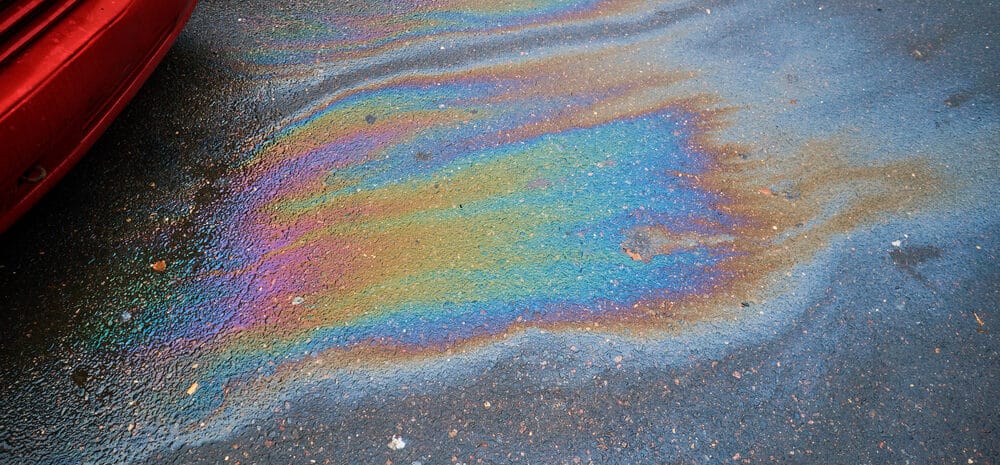
Fuel leaks are more common than you might think. In fact, in 2022, Ford recalled more than 600,000 vehicles because of a fuel leak and possible fire hazard. With so many parts that can wear out, fuel leaks become more common as the vehicle gets older.
In a few minutes, we will look closer at the parts of the fuel system that could spring a leak. With a quick inspection, you should be able to find the culprit.
2. EVAP System Leak
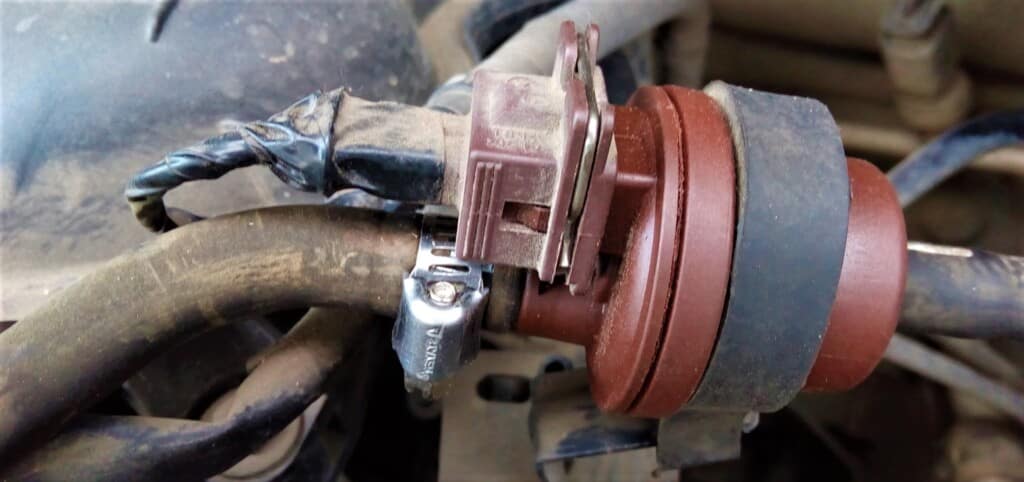
The EVAP (Evaporative Emissions Control) system prevents that faint gasoline smell you used to get in older cars. That’s because only newer models have this system installed. To reduce smells and emissions, the system traps the gas vapors in a charcoal canister. The filtered fumes are then sent back to the engine through a purge valve, so they can be burnt.
When the EVAP system isn’t working correctly, those fumes can escape and you can smell gasoline. The problem could be a damaged canister or trouble with the purge control valve. Either way, it should lead to a Check Engine Light that you can read with your compatible code scanner.
RELATED: What Is An EVAP Leak, And Is it Safe to Drive With?
3. Leaking Gas Cap
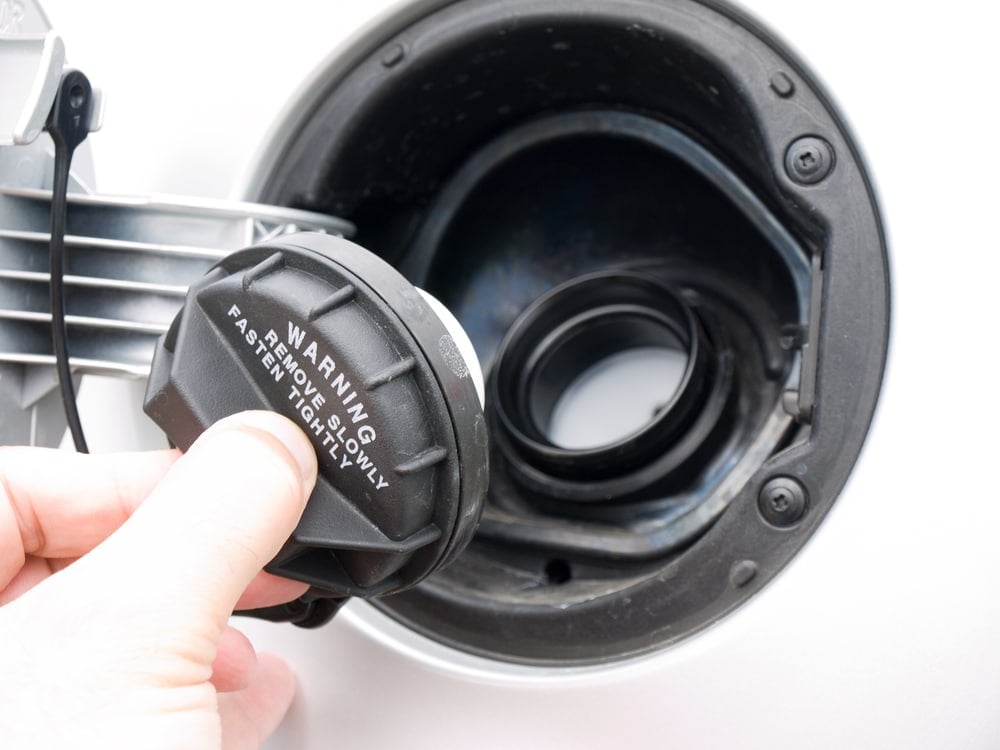
Have you checked on your gas cap lately? If it is cracked or missing, you could smell fuel from the filler neck. Even if the cap is intact, the seal that secures it may be ripped. You can inspect the rubber to see if it’s in good condition and replace the cap if it’s not.
Surprisingly, this is one of the most basic reasons that a Check Engine Light comes on. The system notices a leak of vapors and alerts you to fix it.
4. Rich Mixture
When an engine runs rich, it means there is more fuel than there should be in the combustion chamber. This fuel won’t all burn as it should, so it leaves the exhaust uncombusted.
As the fuel escapes the exhaust, you are going to smell the gasoline vapors. However, they can often be masked because of the catalytic converter. With the Check Engine Light, you should know that the engine is running rich, so you can fix the fault. Otherwise, you will cause damage to the catalytic converter and the spark plugs.
Common Locations For A Gas Leak
Where can a gas leak be found? Gas can leak from anywhere in the system. Some of the most common locations include the fuel filter, fuel hoses or lines, the fuel tank, fuel rail or injector O-rings or the fuel pressure regulator.
1. Fuel Filter
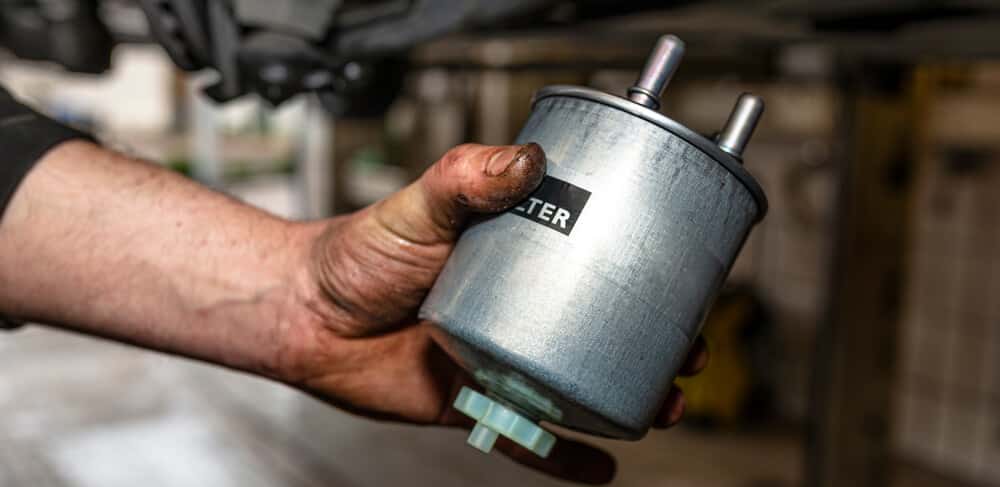
Many cars come equipped with two fuel filters. Usually, there’s a screener located in the fuel tank and another on the main fuel line. These filters have the same job, which is to trap contaminants that would be bad for the engine.
Because you change the fuel filter as part of regular maintenance, there’s always the chance that you’ve installed it wrong. If the fuel filter on the main line isn’t attached correctly, fuel leaks can occur. Many fuel filters are made of metal and are located under the vehicle, which can cause them to rust or corrode and start to leak. Additionally, a clogged fuel filter can cause leaks as the pump tries to compensate by pushing harder.
It doesn’t cost much to replace a fuel filter. You may spend $10 to $45 for the in-line filter. It’s also relatively easy to replace.
2. Fuel Lines or Hoses
The fuel pump pushes gas from the tank to the injectors. Along the way, the fuel runs through the delivery system, made up of lines and hoses. Over time, these hoses and lines can degrade and wear out.
If the hoses are kinked, torn or frayed, gas can start to leak. If left unrepaired, the problem only gets worse. There’s even the possibility that the hose could fail completely, leaving all of your gas to spill on the ground.
Replacing a fuel line or hose doesn’t cost a lot of money. You may spend $50 to $200 on the parts. If you can’t perform the replacement yourself, it’s best to hire a mechanic.
3. Damaged Fuel Tank
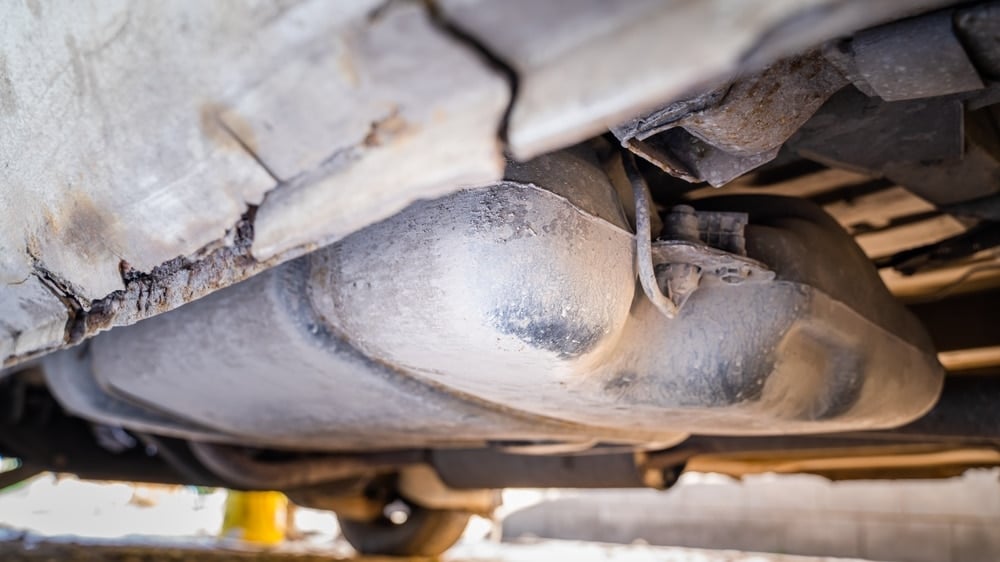
As the gas tank ages, it becomes subject to more corrosion. This happens first at the seams that surround the edge of the tank. If you live in a climate with a lot of ice or snow, the road salt can speed up the corrosion process.
Additionally, the gas tank can become damaged if you run something over. Either way, you probably need a new fuel tank, which may cost $350 to $1,250 with parts and labor.
4. Fuel Rail or Injector O-rings
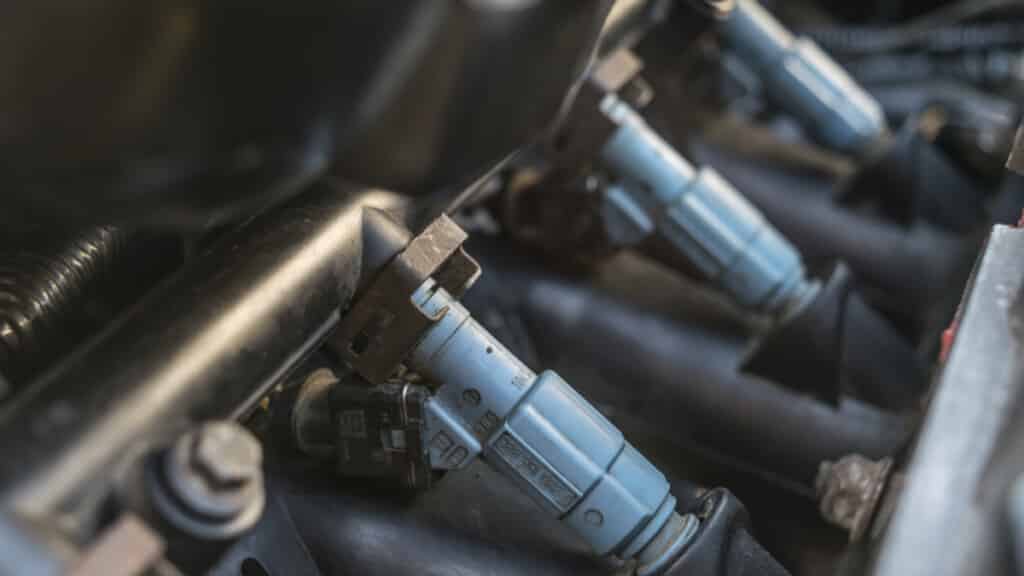
The fuel rail is responsible for delivering gas to the injectors. Then, the fuel injectors pump the gas into the engine. Both parts can become damaged, as can the O-rings surrounding the injectors.
Replacing the O-rings would be the cheapest fix of these issues. On average, it may cost $150 to $450, depending on the type of vehicle you drive.
5. Fuel Pressure Regulator
The fuel pressure regulator also has a limited lifespan, especially if it endures a lot of stress. When it fails, the system starts to leak internally, which causes black smoke from the exhaust. This also leads to a rich running condition, which can cause trouble for the spark plugs and catalytic converter.
On average, you may spend $225 to $450 to have the fuel pressure regulator replaced. If you can do it yourself, it’s possible to save about $100 to $200 on labor charges.
What To Do If My Car Smells Like Gas?
If you smell gas from the car and you didn’t just fill up, it’s important to take quick action to avoid any problems. Gasoline is flammable, so you are putting yourself at risk for a car fire, especially if the fuel gets onto the hot engine or other components.
It’s important to troubleshoot the system to determine where the leak is coming from. If you aren’t comfortable with the diagnosis and repair, it’s best to have the vehicle towed to your local service center. This isn’t a problem you want to mess around with.
Is it safe to drive a car that smells like gas?
No, you should never drive a car when it smells like gasoline. With a gas leak present, your car could start on fire. Instead, park the car somewhere that you can inspect the fuel system. Repair what’s leaking or reach out to a local mechanic for more help.
Why does my car smell like gas but no leak?
If your car smells like gas, but there is no leak it’s possible that the EVAP system is not functioning as supposed to. It’s also possible that the engine is running rich, so unburned fuel is coming out of the exhaust. Bad spark plugs, failing sensors, defective fuel system parts and a malfunctioning ECU can all lead to a rich-running condition. Scan the car for DTCs to see if there’s a trouble code that helps you fix the problem.
Should I be worried if the inside of my car smells like gas?
If there’s a fuel system leak, you could smell the fumes from inside the car. At the first sign of a fuel leak, it’s important to park the car in a safe location and stop driving it. Either have it towed to a service center or get it home where the problem can be located and fixed.
Is a fuel leak expensive to fix?
It depends on what’s causing the problem. If you need to replace the fuel filter, you probably won’t spend more than $50. However, replacing a gas tank, fuel injector or hose could be a little more costly. Have a qualified professional look at the car and get a detailed estimate to know what it will cost.
Will the check engine light come on for a gas leak?
If there’s an imbalance of fuel and air in the combustion chamber because of the leak or malfunction, the Check Engine Light should come on. It could tell you where the malfunction is or it may only give you a generic trouble code, signifying that the engine is running rich.
There are many reasons why we don’t panic and tell people to stop driving their cars in a problem. Many times car issues are minor and can be dealt with at the earliest convenience. With that said, the smell of gas from a car is never one of these issues. It’s always serious and should be treated with the utmost concern.
If you smell gas from your car, find a safe location to park the vehicle. You don’t want to continue driving without knowing what’s wrong. It doesn’t take a lot of leaking fuel on a hot engine part to start a car fire, and we don’t want you to have to deal with that terrible situation.
Categories: Troubleshooting

